SkinMedica suncreens: Do I really need to wear sunscreen everyday? Answers to all of your SPF questions:
Wearing sunscreen everyday is one of the best, and easiest, ways to protect your skin. Even when it’s overcast, up to 80% of the sun’s rays are still being absorbed by your skin. Used regularly, SkinMedica sunscreens can prevent sunburn, skin cancer, and premature aging. It is essential in all skin-care routines! If you are not using an SPF everyday, it is time to start. It doesn’t matter if you are inside or outside- your skin needs protection. Here are some answers to common questions regarding skin protection and sunscreen.
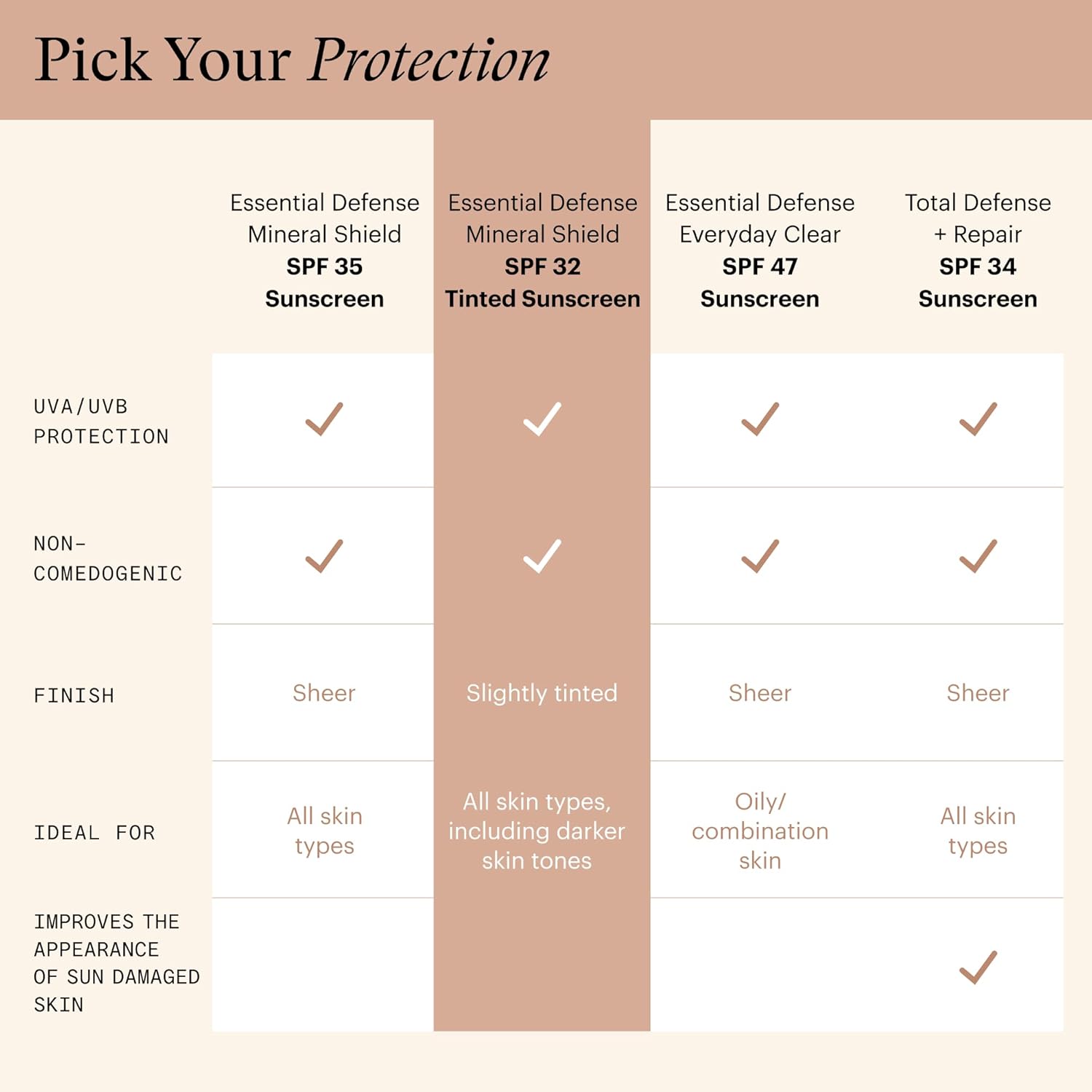
What type of sunscreen should I use?
The basis for any sunscreen should be broad-spectrum, SPF 30 or higher, and water resistant. Don’t worry- all the SkinMedica sunscreens we carry meet these standards!
Considering your skin type is also important. For example, if your skin is dry, choosing a sunscreen that doubles as a moisturizer is important. If it is oily, water-based sunscreen is best for you. Our Essential Defense Everyday Clear sunscreen is great for oily and combination skin! If you have sensitive skin, a sunscreen like our Essential Defense Mineral Shield is a great option, as well as for post-procedural skin.
What are UVA and UVB rays?
There are two types of UV rays- UVA and UVB- both can be damaging to your skin. UVA rays (or aging rays) age your skin, causing sun spots and wrinkles, and can pass through window glass. They penetrate deep into your skin and lead to those premature aging signs in your skin. These are what tans your skin. UVB rays (or burning rays) are the primary cause of sunburn. They penetrate the outer layer of your skin and damage those skin cells. UVA rays stay pretty constant throughout the entire year and pass through clouds (they are also what are emitted by tanning beds). Both of them increase your risk for skin cancer, but Broad-Spectrum sunscreens protect against both types of rays.
What is the difference between chemical and physical sunscreen?
Physical sunscreens contain active mineral ingredients (zinc oxide or titanium dioxide) that act like a shield on top of your skin, deflecting the sun’s rays from your skin. These are also referred to as natural or mineral sunscreens. A plus side of physical sunscreen is that they don’t clog your pores, but a downside is they are often heavier, can leave a film on your skin, and rub off easier, which means you are reapplying much more often.
Chemical sunscreens contain organic compounds that create a chemical reaction that changes the UV rays into heat then releasing them from your skin. They act like a sponge, soaking up the sun’s rays. Chemical sunscreens are well liked because they are thinner and easier to blend into your skin.
Many dermatologists recommend using both physical and chemical sunscreens if your skin will allow it. The combination offers an inner and outer protection. SkinMedica sunscreens combine both types in their formulations, offering wide-spread protection.
What does SPF mean?
SPF stands for Sun Protection Factor. It is a measure of how well the sunscreen protects you from UVB. The number tells you how long the sun’s UVB rays (not UVA) would take to redden your skin if you apply the sunscreen exactly as directed compared to the amount of time without sunscreen. So, if you use an SPF 30 product properly, it would take you 30 times longer to burn than if you used no sunscreen. SPF 30 blocks nearly 97% of UVB rays, and SPF 50 blocks nearly 98% of UVB rays. The important thing with sunscreen is not necessarily the SPF number, but how you use it- reapplying every 2 hours. Also, it is necessary that you use broad-spectrum sunscreen to protect against both UVA and UVB rays since the SPF only measures UVB rays.
What about Infrared Protection?
Infrared radiation (IRA) can penetrate the skin as deep or deeper than UV, so it is important to keep that in mind when selecting products to protect your skin. Antioxidants are the key to protecting against IRA- ingredients like Vitamins A, C, and E, green tea, and pomegranate work to stabilize free radicals which cause damage in your skin when solar energy is absorbed. Our Total Defense and Repair sunscreen (SPF 34) are the perfect products for IRA and UV protection. If your skin-care routine already contains antioxidants (like our Vitamin C + E Complex), you may only need a broad spectrum sunscreen.
SHOP THIS BLOG:
-
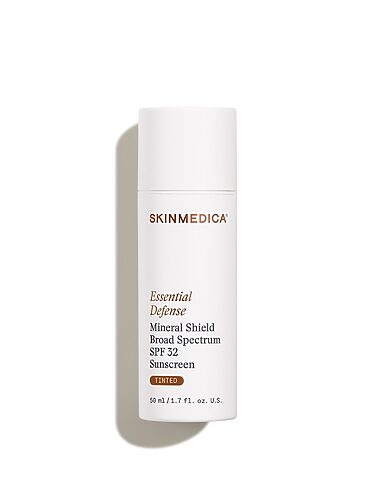 SkinMedica Essential Defense Mineral Shield SPF 32 – Tinted
SkinMedica Essential Defense Mineral Shield SPF 32 – Tinted$38.00See sale price in cart or just $30.40 with a subscription -
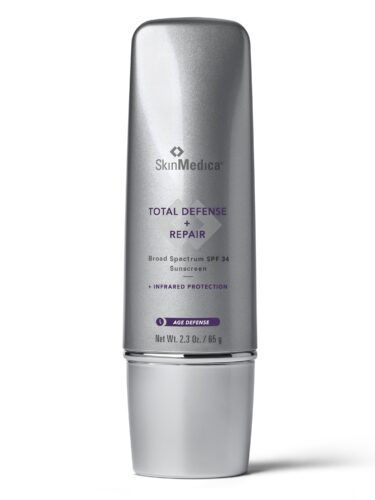 SkinMedica Total Defense + Repair SPF 34
SkinMedica Total Defense + Repair SPF 34$68.00See sale price in cart or just $54.40 with a subscription -
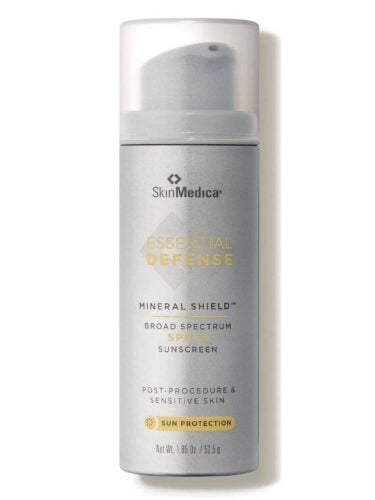 SkinMedica Essential Defense Mineral Shield SPF 35
SkinMedica Essential Defense Mineral Shield SPF 35$38.00See sale price in cart or just $30.40 with a subscription -
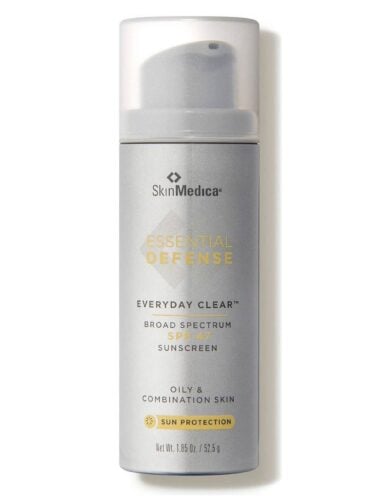 SkinMedica Essential Defense Everyday Clear SPF 47
SkinMedica Essential Defense Everyday Clear SPF 47$38.00See sale price in cart or just $30.40 with a subscription




Comments are closed